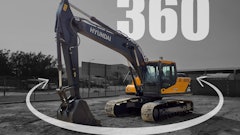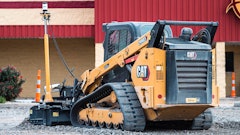While meeting with a new client recently, our discussion revealed a power struggle he was experiencing with his estimator. We talked through the issues and reached the conclusion that he needed to find an estimator that fit the role better and to immediately pull two outstanding bids before they killed the company.
While reflecting on the conversation a couple of days later, I realized that several estimators had placed previous clients in harms' way with their aggressive pricing and lack of knowledge of field crew productivity.
A common problem I've run into with contractors is their poor understanding of the role their estimators should be performing. In most cases, it should not be the estimator's role to make pricing decisions.
A full time estimator should be held accountable for meeting two goals: predicting the cost of construction and predicting the man-hours needed to complete the project on time. Failure to make accurate predictions of construction cost and project man-hours should be considered poor job performance.
Remember, I am writing this advice for self-performing contractors. Estimators of general contractors who do not deploy field crews do not worry about labor productivity.
From my observations, the estimators who consistently put their companies on thin ice usually were overly aggressive in their pricing in an attempt to win bids and were universally unable to predict labor hours. Almost every one of them operated from the same two flawed assumptions:
- Any work is better than no work.
- It is the field crews' responsibility to meet the budget.
It is not easy to land high-profit jobs in this industry. The quickest path to financial security is to avoid money-losing jobs. No work is usually better than bad work.
Good estimators know the key to their success is accurately estimating the man-hours needed to do the work. They rarely assume the field crews will move faster than they normally do.
Unless the estimator and project manager can come up with a short cut from the normal approach, the estimate should be based on the average labor performance of past jobs. Pie-in-the-sky hopes for above average performance are destined to come crashing down when the crews try to close out the project.
Naturally, in order to accurately estimate the man-hours the labor productivity information must be available through the job costing system.
Now, let's revisit the subject of pricing decisions.
The salesman should have the final say in setting price. He is the one who has been talking to the customer.
He is the one who should have already determined whether the company has a competitive advantage the client is willing to pay for. He is the one who should know what the competition is likely to offer.
Relying on the estimator to make the pricing decision is a recipe for disaster. Estimators almost always base their pricing decisions on the size of the current backlog.
They completely ignore whether the client is willing to pay a premium or whether the client is bound to be troublesome. It is a single factor decision: "How much work do we currently have on the books?"
The qualities and characteristics that make for a good estimator are completely different from the qualities and characteristics that make for a good salesman. The estimator's role is accuracy. The salesman's role is persuasion.
If you are a small contractor who has an estimator but does not have a salesman, go hire a salesman (or do it yourself). No business should be without a salesman. Having a salesman is more important than having an estimator.
If you are a small contractor who has a salesman but does not have a full time estimator, your safest course of action may be to let your construction manager create the estimates. He will usually have a far better feel for costs and man-hours than will the salesman. The salesman will have a far better feel for the price the client is willing to pay.
The two working as a team should land and produce highly profitable work!
















